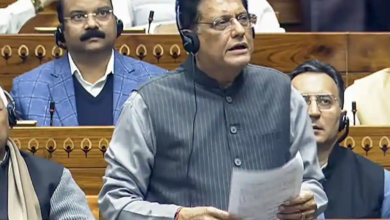11 Married Women Elope With Their Lovers: Alleged Misuse of Pradhan Mantri Awas Yojana Scheme in Uttar Pradesh

News Mania Desk/Agnibeena Ghosh/9th July 2024
Reports have surfaced that several women from Uttar Pradesh have allegedly exploited the Pradhan Mantri Awas Yojana (PMAY) scheme, a central government initiative aimed at helping poor and middle-class families build permanent homes. The controversy has attracted significant media attention and raised questions about the implementation and monitoring of the scheme.
According to media sources, eleven women from Maharajganj district received the first installment of ₹40,000 under the PMAY scheme. Instead of using the funds to commence construction of their homes, these women allegedly absconded with their lovers, leaving their husbands behind. The incident came to light when the deserted husbands reported the situation to the police.
The PMAY scheme is designed to provide financial assistance to economically weaker sections and lower-income groups for the construction of their homes. The government offers a subsidy of up to ₹2.5 lakh depending on the family’s income. The aim is to promote affordable housing and ensure that every family has a permanent residence. However, the recent incidents have highlighted potential loopholes in the scheme’s execution.
News18 reported that about 2,350 beneficiaries in Maharajganj district recently received funds under the PMAY scheme. These beneficiaries were from various villages including Thuthibari, Sheetlapur, Chatia, Ramnagar, Bakul Diha, Khasra, Kishunpur, and Medhauli. Following the revelations of misuse, officials have reportedly decided to suspend the second installment payments to prevent further abuse.
This isn’t the first instance of such misuse. Last year, a similar case was reported in Uttar Pradesh where four married women disappeared with their lovers after receiving a grant of ₹50,000 each under the PMAY scheme. These incidents were discovered when authorities noticed no progress in the construction of the intended houses. Subsequent attempts by officials to prompt the women to start the construction yielded no response, leading to warnings issued to their husbands by the District Urban Development Agency (DUDA).
These occurrences have prompted officials to reassess the monitoring mechanisms of the PMAY scheme. Ensuring that the funds are utilized for their intended purpose is crucial for the success of such welfare programs. The authorities may need to implement stricter verification processes and continuous monitoring to prevent similar incidents in the future.
The PMAY scheme is a pivotal part of the government’s mission to provide housing for all. Misuse of the scheme not only undermines its objectives but also deprives genuinely needy families of the benefits. The government must take corrective measures to ensure that the scheme’s benefits reach the right hands and that similar fraudulent activities are prevented.
The reported incidents in Uttar Pradesh serve as a reminder of the challenges in implementing large-scale welfare programs. They highlight the need for robust oversight and effective grievance redressal mechanisms to safeguard the interests of the intended beneficiaries and maintain the integrity of such initiatives.






